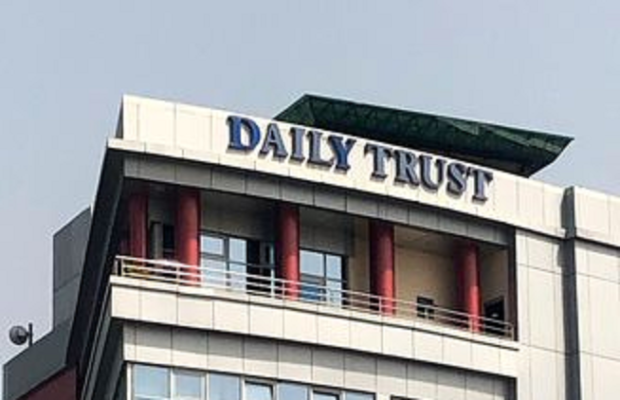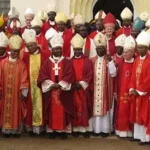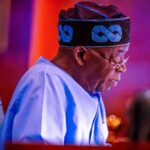Among the bravest acts must be counted the courage to tell truth to power, especially when it is least convenient to do so. This is the founding principle of journalism the world over, and in Nigeria particularly, what our newspapers have been known for since even before the creation of the Nigerian state in 1914. But just as brave is the courage to tell the truth to oneself. It is in this context—and this context alone—that I feel compelled to write this piece.
There is no question that the Tinubu government has got many things wrong since it came to office over a year ago. And as it should rightly be, both the media and Nigerians have taken them to task on these, which is good for the government, good for the media, and good for our democracy. On the specific issue of the Samoa Agreement, however, it is the media that got it wrong. After some research, my reading of the whole situation is that: a) the Daily Trust story of July 4, 2024 titled “LGBT: Knocks As Nigeria Signs $150 Billion Samoa Deal” is a piece of sloppy reporting; b) there is no provision mandating member states to adopt LGBT rights in the Samoa Agreement; and c) yes, the European Union (EU) actually tried, but ultimately failed, to have those provisions included in the agreement.
The most important problem with the story in question is that it did not cite the contentious clauses in the agreement on which the entire reporting—and the ensuing controversy—is based. News is a factual claim. Therefore, a news story must first be based on facts, and still demonstrate its facticity, for example, through details like date, time, attribution of human or documentary sources, verification, etc. It is not enough to say that “The agreement reportedly has some clauses that compel underdeveloped and developing nations to support the agitations by Lesbian, Gay, Bisexual, and Transgender (LGBT) community for recognition, as condition for getting financial and other supports from advanced societies” as the story in question merely did. The story must cite the said contentious sections directly from the original document, both to affirm them as fact and also to give the reader a chance to make up their own minds about what makes them contentious or important. Unfortunately, the story failed this fundamental test of reporting.
The headline is also misleading, as it suggests that the government traded away our sovereignty and religious values for money. Nowhere in the entire text of the “Negotiated Agreement” first approved by the joint EU-Organization of African, Caribbean, and Pacific States (OACPS) chief negotiators on 15th April 2021, a 187-page document, was money mentioned in any specific sense. My impression is that the $150 billion amount came into the report from the government’s own attempt to spin the signing of the agreement as a positive for the economy, when in fact, there is little in the agreement that is country-specific.
- Engine roller kills worker at Ogun steel company
- Insecurity: We’re focused on eliminating threats — COAS
This brings us to the text of the Samoa Agreement itself, the contentious parts of which are in Part II, Title I on Human Rights, Democracy and Governance, particularly Articles 9, 10, 11 and 29 on “Human rights, democracy and rule of law”, “Gender equality”, “Inclusive and pluralistic societies”, and “Health”, respectively. Nowhere in any of these sections is the adoption of LGBT rights explicitly or implicitly mentioned as legally binding on member states to the agreement. In fact, none of the words “gay”, “lesbian”, “bi-sexual” or “transgender” (I have never typed some of these words before in my whole life) appears anywhere in the 187-page document. Article 9.2 on human rights, for example, states only that “The Parties shall commit to the promotion of universal respect for, and observance of, human rights and fundamental freedoms for all, without discrimination based on any ground including sex, ethnic or social origin, religion or belief, political or any other opinion, disability, age, or other status. They commit to fighting all forms of racism, racial discrimination, xenophobia and related intolerance, and all forms of violence and discrimination, including all instances of advocacy of hatred…”.
Similarly, Article 29.5 on reproductive health states only that “The Parties shall support universal access to sexual and reproductive health commodities and healthcare services, including for family planning, information and education, and the integration of reproductive health into national strategies and programmes”. Most of these provisions in the Samoa Agreement are the same as in the EU-OACPS Cotonou Agreement, signed and 2000 and which only expired in 2023, or in other existing international legal and policy frameworks to which Nigeria has long been a party, like the UN Declaration of Human Rights, the Sustainable Development Goals, and even the operating principles of many donors supporting government, civil society, and media programmes throughout Nigeria for decades. Moreover, most of the provisions in the 42-page “Negotiating Mandate” agreed by African, Caribbean and Pacific countries before negotiations began in 2018, focused mainly on issues like trade, investments and industrialization, funding, etc, not sexual orientation or gender identity issues. So, no, there is no evidence in the Samoa Agreement that signing it, as Nigeria did, will legalize LGBT rights in this country as many now believe.
However, the European Union did try to have them included in the Agreement, but failed. First, right from the outset, the EU defined and outlined its own priories for the agreement: migration, climate change, human rights, poverty eradication and political clout. This last is important because the EU-OACPS Partnership brings together 1.5 billion people from 105 countries on four continents, thereby giving the EU some political leverage in international affairs. Migration and climate change, as we know, and often fused in several ways, are the two most important domestic and foreign policy headaches facing Europe right now.
And then then there is the issue of human rights, which nowadays tend to euphemistically mean LGBT rights. In its own “Negotiating Directives” to its negotiators, the EU makes clear that it would like the provisions “human rights” and “discrimination” in the previous Cotonou Agreement be restated in the new agreement to explicitly highlight LGBT concerns. For example, parts off the 86-page document reads, The Agreement will promote rights-based policies, encompassing all human rights and ensuring equal access to opportunities for all members of society, regardless of ethnicity, gender, age, disability, religion, beliefs, sexual orientation and gender identity”. These EU proposals were rejected by many African countries, including Nigeria, and they failed to make it into the final Samoa Agreement signed on 15 November 2023, and which Nigeria in June 2024. In addition, the Agreement still allows for particular domestic interpretations of even the provisions from the UN later adopted, meaning that nothing in it can contravene our existing laws.
This is my current understanding of this needless controversy, to the best of my knowledge. Two final comments, however. First, the kind sloppiness and mistake that generated this controversy are not deliberate and happen, to varying degrees, in all newsrooms the world over. these are generally errors on the side of duty, not of malicious intent. I don’t think people in any newsroom wake up and say let us do a story to embarrass or undermine this or that government. Moreover, like refereeing errors in sports, journalistic mistakes could benefit some politicians today, but go against them tomorrow. When parties and politicians are in opposition, they benefit and take advantage of such mistakes, but when in government they complain or threaten journalists. In other words, the field is actually fairly even for all.
Second, Nigerian governments are generally even sloppier in responding to such mistakes. What was needed from the government, by the evening of July 4 when the story was published, was for a very senior official of the government—a Minister or higher—to use their own Muslim or Christian backgrounds to defuse the story. Instead, people were grumbling on social media, allowing Nigerians enough time to interpret the issue as they deem fit. And here we are.

 Join Daily Trust WhatsApp Community For Quick Access To News and Happenings Around You.
Join Daily Trust WhatsApp Community For Quick Access To News and Happenings Around You.


